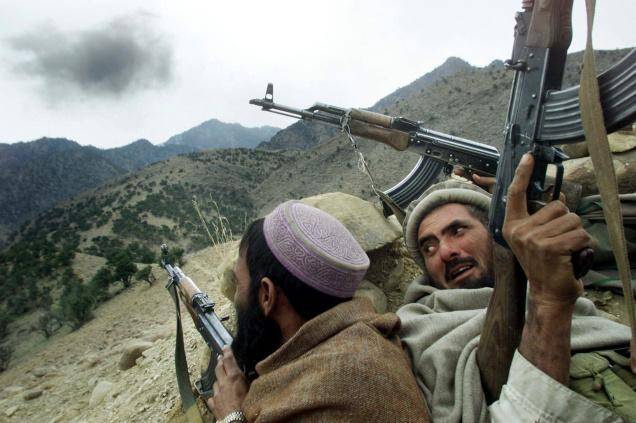KABUL- The Taliban this fighting season has departed from traditional tactics of road side bombs and suicide attacks, opting for a more aggressive and confrontational tactic of large-scale group offensives.
Such attacks in southern and eastern Afghanistan have posed major challenges for security officials, who are increasingly confident that support from Pakistan had fueled the shift in militant strategy.
The first major Taliban offensive this fighting season started in Sangeen district of southern Helmand province. Hundreds of militants swarmed the area and battled security forces for weeks, eventually expanding the hostilities to other nearby districts. The aftermath of the fighting is still felt in Marjah, Musa Qala and Sangeen districts.
The Taliban then launched an offensive in eastern Nangarhar province a few days ago, but were less successful thanks to a quick and effective response by Afghan forces. As was the case in Helmand, hundreds of militants participated in the offensive in Hesarak district, which has similarly impacted surrounding districts, such as Sherzad and Khogyani.
According to security officials, there is evidence that Pakistani intelligence was involved in both offensives. "The presence of Pakistani military forces, fighting in groups and the plotting of these attacks is quite distressing," said Najibullah Danish, a spokesman for the Ministry of Interior.
The motivations behind Pakistan's interferences in Afghanistan remain somewhat unclear. Although Islamabad has long been a supporter of the Taliban, more recently, they have suffered at the hand the militant group's branch in their own country. Still, many experts maintain Pakistan simply wants to cause as much trouble for the U.S. in Afghanistan as possible.
"The problem is the result of hostility between the two countries, Pakistan has failed to overcome these challenges and is trying to get revenge," a Pakistani University lecturer named Ejaz Khan told sources.
When it comes to the practical reality of the recent militant aggressions, however, it seems clear a much simpler answer would suffice in explaining how they are made possible. "The main reason is the open border, if a guy travels from Quetta, he can go directly to the Helmand Governor's office," military analyst Jabbar Qahraman said.
Over the past four years, the Pakistani military has fired rockets on Afghanistan's eastern regions that have left hundreds dead or injured and more than 1,500 families displaced. But Islamabad continues to deny their involvement in the attacks, leaving Afghan leaders to stew in suspicion without redress.






